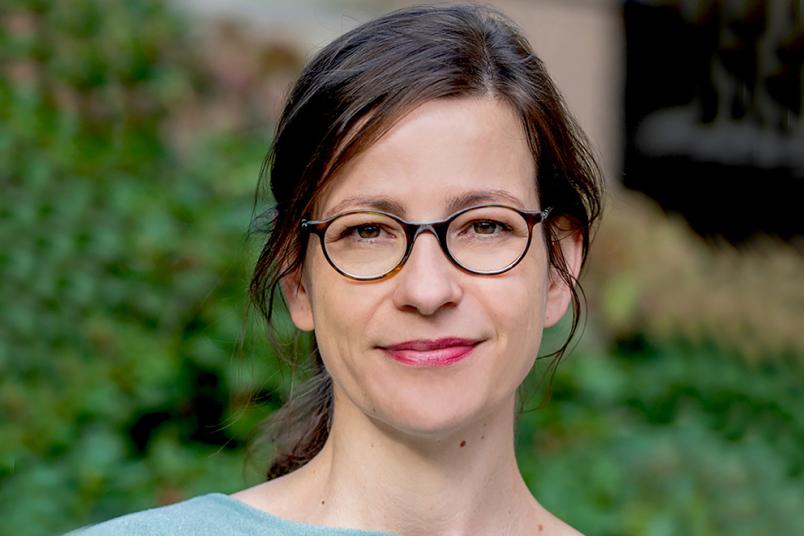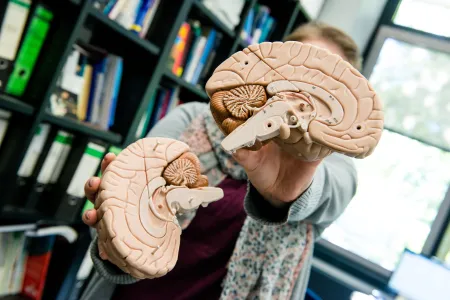
Award
Heinz Maier-Leibnitz Prize for Marcella Woud
The researcher shows strong correlation between interpretation processes and mental health.
The way we interpret a situation or our future prospects is closely associated with our mental health. This knowledge leads the research of Professor Marcella Woud at the Faculty of Psychology at Ruhr University Bochum: her aim is to gain a better understanding of the mechanisms underlying interpretational processes as well as to develop computerised trainings to improve interventions for people suffering from mental health disorders. She is being awarded this year’s Heinz Maier Leibnitz Prize of the German Research Foundation for her work. The award winners will receive 200,000 euros each, and they can use this money to further support their research for a period of three years. The award ceremony will take place on 16th October 2023 in Berlin.
Biased interpretations
People who have suffered psychological trauma experience a range of symptoms, including intrusions. Intrusions involve reliving the traumatic experiences over and over again, for example in the form of recurring mental images. “Some patients interpret these symptoms as a sign that they will never be able to cope with and process the trauma,” explains Marcella Woud. “However, intrusions are part of the natural healing process.” Such cognitive biases characterise many mental disorders, including anxiety and depression. “People suffering from depression interpret their future prospects in a very negative manner,” says Marcella Woud. “This can be a contributing factor for people to develop a depression in the first place and for the disorder to persist in the long term.”
“Marcella Woud’s research makes her both a pioneer and a visionary,” stresses Professor Jürgen Margraf, Head of the Department of Clinical Psychology and Psychotherapy at Ruhr University Bochum. “She was the first researcher to show that dysfunctional interpretations were predictive of the onset of a panic disorder.”
Computer trainings have potential
These findings have led the researcher to develop innovative interventions. Together with her team, she designed computerised programmes that help patients to interpret disorder-relevant, ambiguous situations in a positive and functional manner. “If you think in a less anxious manner, you also feel less anxious.” Initial studies showed that such training have beneficsl effect in the treatment of mental health disorders.
A second, new focus of Marcella Woud’s work is her interdisciplinary, mechanism-oriented research. Among other foci, she’s investigating is the impact of different pharmacological enhancers on cognitive-emotional processes as well as their psychophysiological and neuronal correlates. Moreover, Marcella Woud aims to systematically evaluate previous research. This has resulted in various review articles and meta-analyses.
